ChatGPT and tourism are a great match. The generative AI chatbot has been taking the world by storm, with more and more industries adopting this exciting new technology for various applications. ChatGPT is set to be one of the top future tourism trends. In this article, you’ll learn what ChatGPT is and how it can benefit companies in the tourism industry.
Table of Contents:
- What Is the Tourism Industry?
- What Is ChatGPT?
- Is ChatGPT Free to Use?
- Can ChatGPT Be Useful to Companies?
- ChatGPT in Tourism: 5 Advantages
- Harnessing the Potential of ChatGPT: 5 Strategies for the Tourism Industry
- 3 Examples of ChatGPT in the Tourism Industry
- ChatGPT Tourism Is Online a Small Part of General Tourism Technology
What Is the Tourism Industry?
Before delving into ChatGPT tourism applications, it’s useful to consider the nature of the tourism industry.
Essentially, the tourism industry comprises all activities related to short-term travel, such as vacations. Generally speaking, the tourism industry covers those businesses providing solutions for people traveling away from home for less than a year.
Tourism is one of the biggest global industries, driving the economies of many regions and entire nations. As you can imagine, this is a very wide-reaching category. It doesn’t just cover visits to scenic locations and sites of interest but all the activity involved in transporting, accommodating, feeding, and entertaining consumers.
Tourism includes everything from the aviation industry to hotels, restaurants, and tour operators. To learn more about the tourism industry, read “Tourism Industry: Everything You Need to Know About Tourism“.
What Is ChatGPT?
To understand the relevance of ChatGPT in tourism, you first need to know what ChatGTP is and how it works. ChatGTP is a chatbot powered by generative AI (artificial intelligence). Generative AI models use large training data to create text, images, and videos.
ChatGPT uses NLP (natural language processing) to create natural and human-like dialogs. ChatGPT can answer questions, respond to prompts, and create different written materials. It can converse, write articles, compose social media posts and emails, and even produce or debug software code.
Video: What is ChatGPT and How to Use it in Travel and Tourism
Is ChatGPT Free to Use?
A free version of ChatGPT is available from OpenAI, the company behind it, on their website. Anyone can use this version by registering on the site (registration is free). Access is limited during times of high demand, and responses can be slow.
When the servers that run ChatGPT are at capacity, the service may become unavailable until demand is reduced. Users can upgrade to ChatGPT Plus to avoid these limitations. It is also possible to purchase access to later software versions, which can be run on your own systems. This might be a better option for ChatGPT tourism applications.
Can ChatGPT Be Useful to Companies?
ChatGPT’s primary feature is its ability to output text that appears human-written. It can be useful for companies that need social media posts but don’t have social media staff to write them. It’s also useful if you need to create code for a particular application.
ChatGPT can be used for research, although you need to take care when doing this as it doesn’t always return accurate information. To unlock all the potential benefits of ChatGPT, tourism-related businesses will need to fine-tune it so that it can better fulfill their individual objectives. For example, businesses in the cruise industry will have different needs than hotels.
Video: Chat GPT by Open AI: How to Use Chat GPT in Tourism & Hospitality Management
ChatGPT in Tourism: 5 Advantages
ChatGPT’s tourism-related benefits are numerous. Here are some of the five most important advantages this new tool could have for your company.
Cost Reduction
ChatGPT has the potential to cut costs for businesses in various ways. Firstly, it can lighten the workload of a customer service team by handling many common queries and issues. This lets service agents focus on more complicated or sensitive questions requiring human involvement.
ChatGPT can also be used to create code and social media posts, further reducing the need for additional staff and allowing existing staff to use their time more efficiently. ChatGPT can also be used to automate lead generation and other tasks, allowing for reductions in both staff and infrastructure.
Increased Customer Satisfaction
Unlike human customer service agents, ChatGPT is available immediately and at any time of day. Customers value their time, and being able to get support without waiting helps them to feel appreciated. This is especially important in the tourism industry, where customers need to feel welcomed and valued.
Accessing accurate information, immediately and without waiting in line for an agent, can greatly increase customer satisfaction. ChatGPT instances can be programmed to identify more complex queries and escalate these to a human operator when necessary, avoiding frustration.
Data Analysis & Collection
As well as producing text and communicating with customers, ChatGPT has another valuable capacity: data collection. All chats with ChatGPT are stored and can be accessed later, allowing businesses to analyze the information customers provide during their conversations with the chatbot.
This information can be valuable in crafting marketing strategies, developing new products, and understanding the needs and preferences of customers. Data can also be analyzed in real-time, allowing for agile operations and immediate decision-making. This rich data store can dramatically improve customer satisfaction, increasing loyalty and retention.
Improve SEO Rankings
Search engine optimization (SEO) is crucial for any business, especially tourism-related businesses. A large volume of fresh and engaging content online can greatly boost a company’s visibility in search results. Used with care, ChatGPT can help enhance search rankings by assisting in creating high-quality content.
“Raw” and unedited ChatGPT output is better suited for short posts on social media, while human-edited text can be used in articles and other website content. Using ChatGPT’s tourism-related texts, businesses can quickly populate blogs and websites, raising their profile in search results. ChatGPT can also be used to research keywords and topics to improve SEO.
Multilingual Engagement
Companies in the tourism industry are likely to have customers from all over the world. This means many customers may struggle communicating with them due to their different languages. ChatGPT can be extremely useful here, as it can communicate freely in many widely spoken languages.
For example, a speaker of Mandarin would have no problem asking for information about a hotel in France if the latter has deployed ChatGPT for customer service. ChatGPT can also facilitate on-site communication between customers and staff, even with a language barrier, allowing for greater customer satisfaction.
Harnessing the Potential of ChatGPT: 5 Strategies for the Tourism Industry
Here are five of the top strategies for ChatGPT tourism applications.
Customer Service
As you’ve already learned, ChatGPT is being rolled out by many tourism companies to deliver round-the-clock customer support. It can also generate materials for customer communication, such as SMS texts, emails, direct messages on social media platforms, and more.
Because ChatGPT can generate cogent responses to customer questions, it can provide a positive experience for customers who interact with it. Conversations with ChatGPT are more personalized than traditional chatbots, and the range of questions it can handle is much wider. ChatGPT can be configured to provide specific information, such as current offers FAQs.
Booking and Reservations
ChatGPT is sophisticated enough even to take reservations and make bookings for guests. A customer can start a chat to ask about availability and prices, then book in the same chat. They can also use the ChatGPT interface to check their booking details, modify bookings or make cancelations.
This is especially useful during times of high demand when customer service agents may be busy and wait times can be long. Allowing customers to check availability and make or modify bookings in a natural, intuitive manner dramatically improves the experience and leaves them with a better impression of your service.
Personalized Recommendations
ChatGPT’s extensive language analysis capabilities allow it to look at a customer’s preferences and previous travel history, and use these as the basis for personalized recommendations. Using ChatGPT’s language processing capabilities, a company can craft customized travel itineraries and experiences, offer recommendations and suggest activities, products, or services that might suit a customer’s needs.
One example might be a customer looking for a family vacation for four, who would prefer a cottage or villa, and has a budget of $8000. ChatGPT can use this information to suggest destinations, accommodation, travel itineraries, and appropriate activities.
Travel information
Providing customers with up-to-the-minute travel information makes for smoother travel and happier customers. Travel companies increasingly turn to chatbots to supply this kind of support for their customers. ChatGPT is particularly useful in this context, as it can immediately deliver the exact information a customer requires.
For instance, ChatGPT can suggest alternative routes if travel is disrupted, tell customers about the local weather, and provide important information such as visa requirements and recommended vaccinations. It can also tell customers about their destinations, suggest activities or entertainment, provide recommendations for accommodation or dining, and offer tips on local customs or culture.
Marketing
ChatGPT’s tourism industry applications also extend to tourism marketing. ChatGPT can automate customer engagement on social media platforms, answering questions, telling customers about forthcoming deals, and helping customers put together personalized accommodations or travel packages. It can also create highly personalized marketing material: emails, social media messages, and SMS texts.
ChatGPT’s analytical capabilities make it ideal for identifying tourism trends, crafting marketing strategies, and developing new products, services, or deals. Data can be acquired from multiple sources, including ChatGPT’s own conversations with customers, analyzed, and used to find new customers or encourage existing customers to make further purchases.
3 Examples of ChatGPT in the Tourism Industry
ChatGPT has been adopted by businesses across various sectors, from the airline industry to online travel agents. In this section, you’ll learn about three major travel and tourism platforms already implementing ChatGPT.
Kayak
Kayak has already rolled out a ChatGPT implementation on its platform. Kayak has deployed ChatGPT as a virtual assistant for its customers, delivering more intuitive and natural interactions via the site’s search engine. Customers can now enter their queries in natural language and receive an accurate response.
For instance, a customer might type in the prompt, “What destinations can I fly to from JFK this June for around $600?” ChatGPT would return suggestions based on the user’s query, and also on information that Kayak already holds about their past activity and data from similar customers.
Image attribution: Twitter
Expedia
Expedia’s mobile travel app is one of the most heavily used in the industry. To help customers research and book their trips and accommodation, Expedia recently announced that it’s incorporating ChatGPT features into its mobile app. When customers launch the app, they will be greeted with a ChatGPT text box that prompts them to start a chat and explore ideas for their upcoming trips.
ChatGPT should integrate well with Expedia’s other AI-based features and capabilities, such as price tracking for airline travel and hotel comparison. It’s hoped that this more interactive and natural experience will make planning and booking trips easier for consumers.
Video: Expedia launches new feature powered by ChatGPT to help plan travel
Air India
Air India is rolling out a $200-million upgrade to its digital systems. As a part of this, it will implement ChatGPT functionality in its app and web platform. The airline has created its own custom chatbot powered by ChatGPT, called Maharaja.
Customers who visit the Air India website or use the app can chat with Maharaja and ask questions in English, Hindi, French, and German. The chatbot will answer questions about Air India’s services or direct users to the relevant information. Air India invests heavily in AI, so Maharaja is part of a wider transformation process.
Video: Air India to use Chat GPT
ChatGPT Tourism Is Online a Small Part of General Tourism Technology
Technology is transforming the way that people travel. The advent of smartphones and online travel agencies set a seismic upheaval in how people seek out new destinations and devise their journeys. Technology constantly changes from natural-language chatbots like ChatGPT to the GPS tour guide.
In general, anyone involved in tourism management and tourism must keep abreast of the latest developments. If learning about ChatGPT in the tourism industry has whetted your appetite, you’ll want to check out “Key Technology Trends Emerging in the Travel & Tourism Industry.” In this article, you’ll get an in-depth look at some of the latest technology to impact the tourism industry.
ChatGPT Tourism Guide FAQs
Although ChatGPT still has its limitations, adding this versatile new technology can benefit businesses in the tourism industry in various ways. From hotels to the restaurant industry, ChatGPT is set to fill many different roles in travel and tourism.
Want to Learn More About ChatGPT in Related Industries?
In the following articles, you can learn more about the use of ChatGPT in related industries.
- ChatGPT Hotel Guide: Learn How Hotels Can Benefit from ChatGPT!
- ChatGPT Hospitality Guide: How ChatGPT Can Help the Hospitality Industry
- ChatGPT Travel Guide: How the Travel Industry Can Benefit!
More Tips to Grow Your Business
Revfine.com is the leading knowledge platform for the hospitality and travel industry. Professionals use our insights, strategies, and actionable tips to get inspired, optimize revenue, innovate processes, and improve customer experience.Explore expert advice on management, marketing, revenue management, operations, software, and technology in our dedicated Hotel, Hospitality, and Travel & Tourism categories.
This article is written by:
Hi, I am Martijn Barten, founder of Revfine.com. With 20 years of experience in the hospitality industry, I specialize in optimizing revenue by combining revenue management with marketing strategies. I have successfully developed, implemented, and managed revenue management and marketing strategies for individual properties and multi-property portfolios.

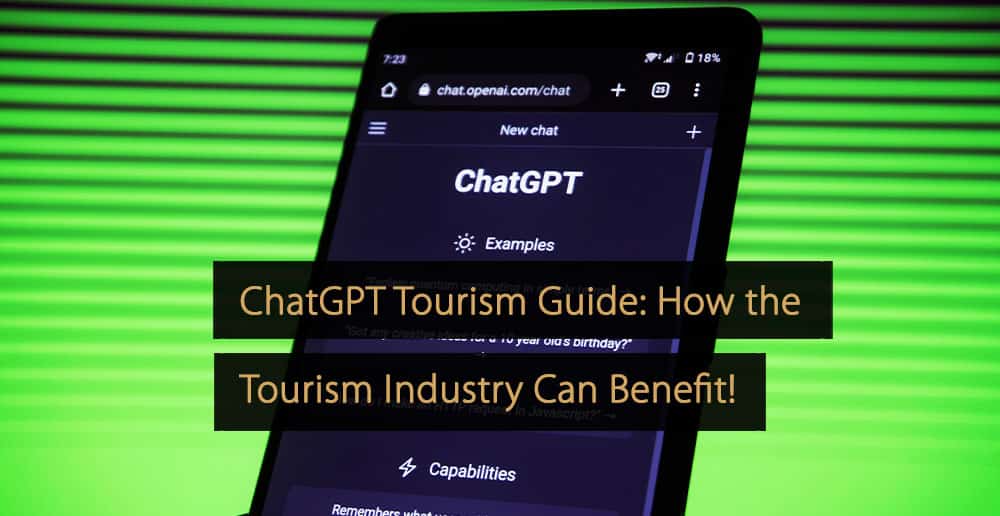
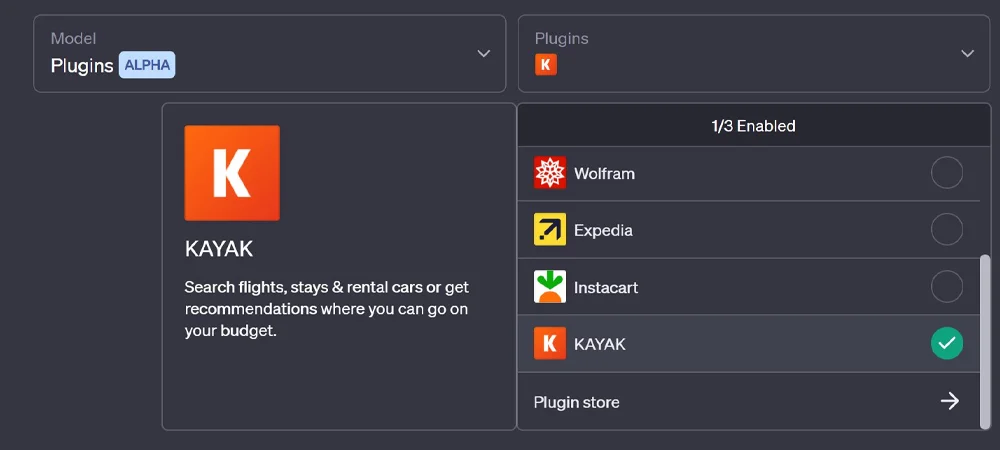

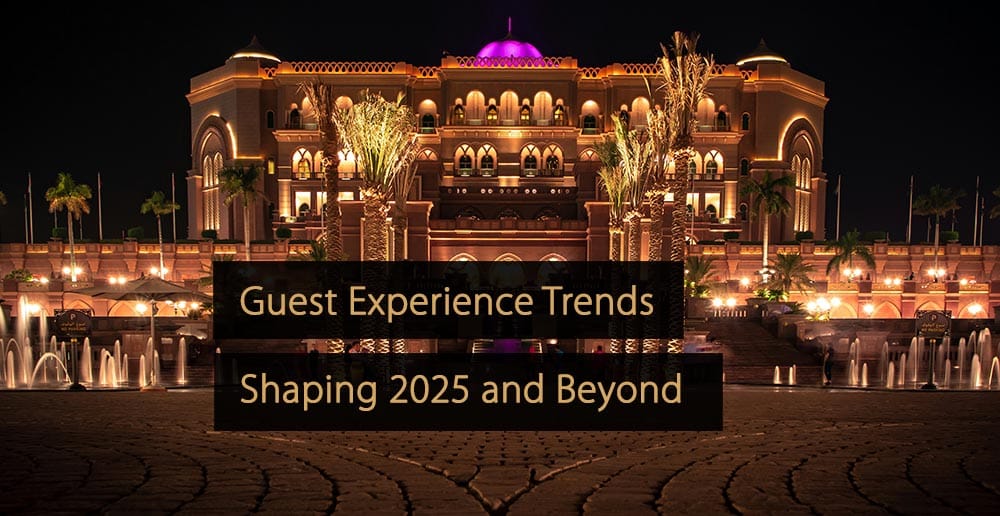
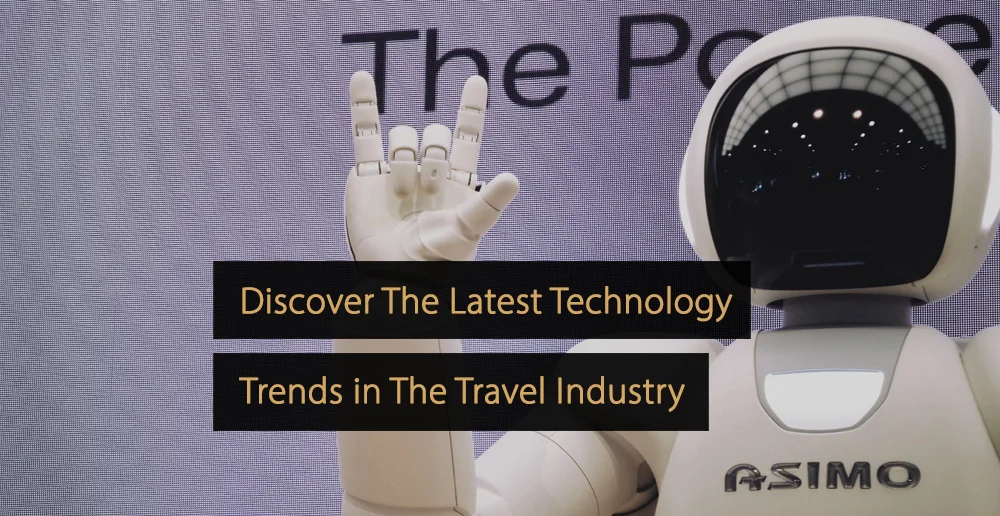
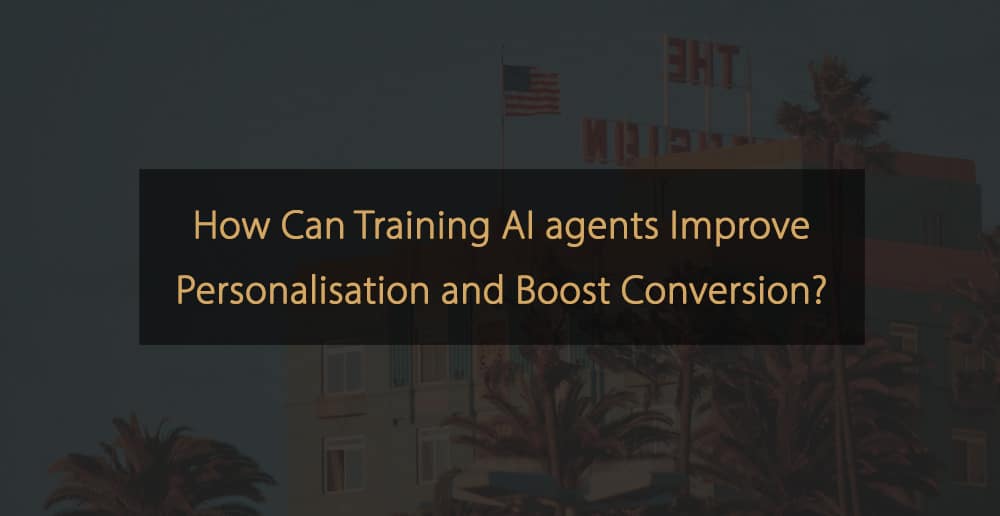
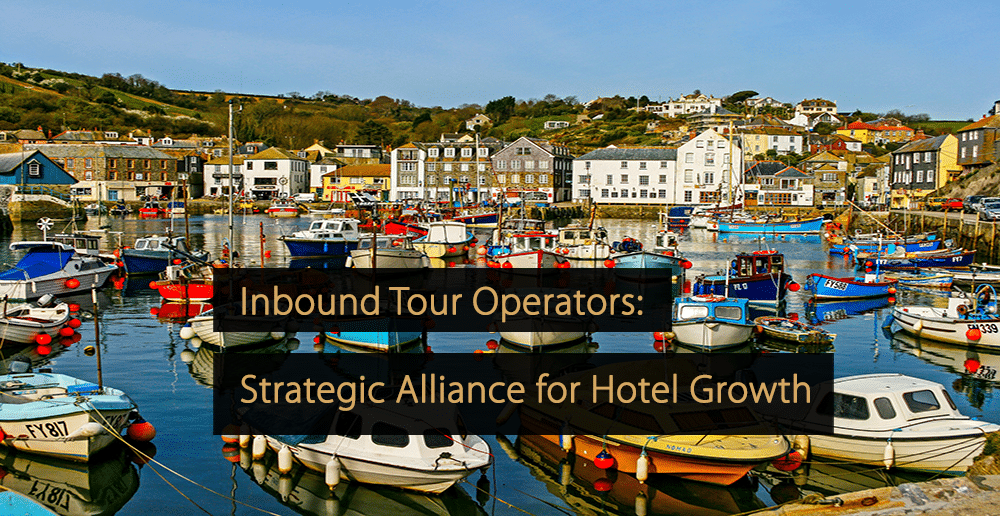


Leave A Comment